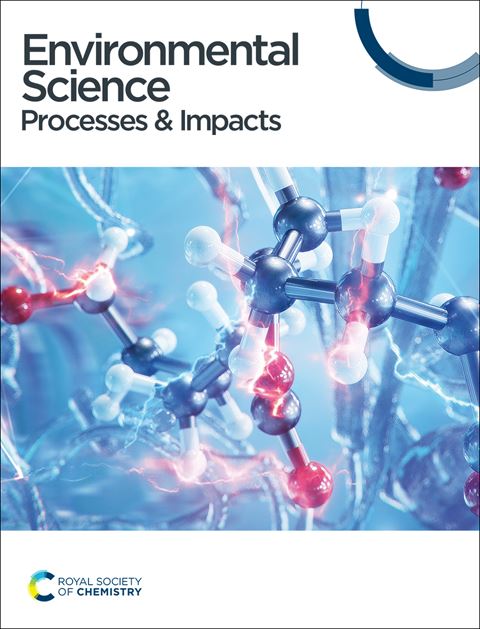估计科罗拉多州安全、喷泉和广域地区对全氟烷基酸的历史暴露:使用水基础设施混合和毒性动力学模型。
IF 3.9
3区 环境科学与生态学
Q1 CHEMISTRY, ANALYTICAL
引用次数: 0
摘要
饮用水可能是人类接触多氟和全氟烷基物质(PFAS)的主要来源。缺乏关于全氟辛烷磺酸饮用水浓度和消费模式的历史数据是制定过去暴露估计的一个限制因素。在这里,为了对火灾训练设施附近被PFAS污染的当地含水层进行社区规模的PFAS健康影响研究,我们提出了一种新的水-基础设施,质量平衡混合模型与非稳态单室毒性动力学模型耦合,该模型使用蒙特卡洛模拟来估计科罗拉多州埃尔帕索县三个受PFAS影响的社区中个人饮用水中PFAS暴露的开始。我们的建模重点是全氟己烷磺酸(PFHxS),因为当地居民样本(n = 213)的血清PFHxS浓度中位数是美国国家健康与营养检查调查(2015-2016)中位数的12倍。研究参与者的建模结果根据他们居住的社区进行分组,揭示了1998年Fountain镇(25-75%四分位数范围[IQR], 1992年至2010年),2006年(IQR 1995年至2012年)为Security镇,2009年(IQR 1996年至2012年)为Widefield镇的中位数暴露起点。基于城镇相对于已确定的水力上梯度PFAS源的位置,模型暴露序列与该概念流模型并不完全一致,这意味着在Widefield和Fountain之间存在额外的PFAS地下水源。本文章由计算机程序翻译,如有差异,请以英文原文为准。
Estimating historical exposure to perfluoroalkyl acids in Security, Fountain, and Widefield Colorado: use of water-infrastructure blending and toxicokinetic models.
Drinking water can be a major source of poly- and perfluoroalkyl substance (PFAS) exposure for humans. The lack of historic data on PFAS drinking-water concentrations and consumption patterns are a limiting factor for developing estimates of past exposure. Here, in contribution to a community-scale PFAS health effects study near fire training facilities that contaminated a local aquifer with PFASs, we present a novel water-infrastructure, mass-balance mixing model coupled to a non-steady state, single-compartment toxicokinetic model that used Monte Carlo simulations to estimate the start of PFAS exposure in drinking water for individuals within three PFAS-impacted communities in El Paso County, Colorado. Our modeling focused on perfluorohexane sulfonic acid (PFHxS) because median serum PFHxS concentrations in a sample of local residents (n = 213) were twelve times the median observed in the U.S. National Health and Nutrition Examination Survey (2015-2016). Modeling results for study participants were grouped according to their community of residence, revealing a median start of exposure for the town of Fountain of 1998 (25-75% interquartile range [IQR], 1992 to 2010), 2006 (IQR 1995 to 2012) for Security, and 2009 (IQR 1996-2012) for Widefield. Based on the towns' locations relative to an identified hydraulically upgradient PFAS source, the modeled exposure sequencing does not completely align with this conceptual flow model, implying the presence of an additional PFAS source for the groundwater between Widefield and Fountain.
求助全文
通过发布文献求助,成功后即可免费获取论文全文。
去求助
来源期刊

Environmental Science: Processes & Impacts
CHEMISTRY, ANALYTICAL-ENVIRONMENTAL SCIENCES
CiteScore
9.50
自引率
3.60%
发文量
202
审稿时长
1 months
期刊介绍:
Environmental Science: Processes & Impacts publishes high quality papers in all areas of the environmental chemical sciences, including chemistry of the air, water, soil and sediment. We welcome studies on the environmental fate and effects of anthropogenic and naturally occurring contaminants, both chemical and microbiological, as well as related natural element cycling processes.
 求助内容:
求助内容: 应助结果提醒方式:
应助结果提醒方式:


